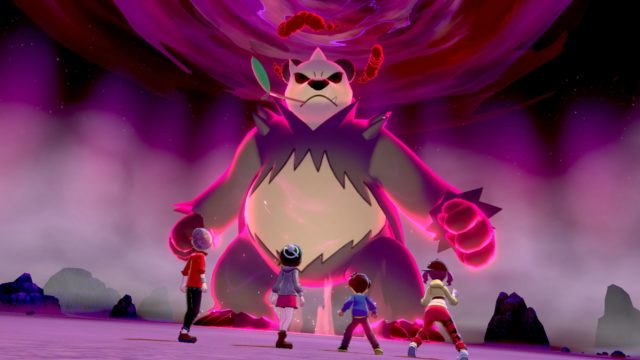
During the Pokémon Direct broadcast last week, the second I saw the words “DLC” flash across the screen, I knew some fans were going to be in an uproar. Pokémon has polarized a portion of its own fandom due to something that is being called “Dexit” on social media. The hashtag, in brief, revolves around the fact that the National Pokédex has been done away with following the launch of Pokémon Sword and Shield. For the uninitiated, the National Dex (as it’s commonly shortened) was a record of all known Pokémon in existence. Prior to Sword and Shield, every mainline Pokémon game since Ruby and Sapphire allowed fans to carry over their Pocket Monsters between each installment.
For many, this was a huge draw of the series. Taking their Pokémon from earlier versions was fulfilling in a way that was truly unique to the series. When word came that not all Pokémon would be making the leap to Switch, however, it confused, frustrated, and angered a very vocal minority of the fanbase. I say “minority” because, despite the fervor in comments threads on social media and online message boards, Sword and Shield went on to sell millions of copies in its first weekend on store shelves and continues to outpace even Super Smash Bros. Ultimate in terms of global saturation. If the death of the National Dex was the death of the franchise, it is a very slow demise, indeed.
When it was revealed that Pokémon Sword and Shield will be receiving an Expansion Pass, it would seem that many of the same members of that pocket of disgruntled fans took to the Internet to declare a number of negative things about this DLC that are, to be blunt, untrue. In an effort to keep things as transparent as possible, here’s a rundown of what was announced (click the links for even more detail):
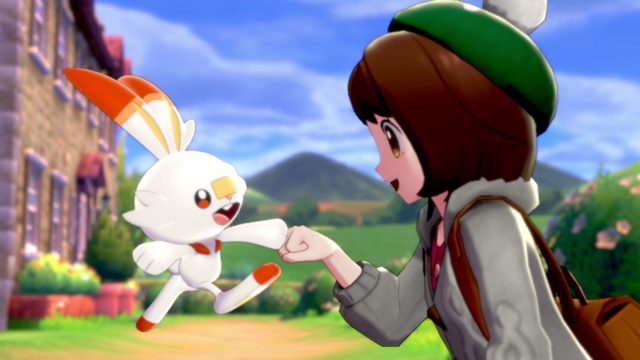
- Expansion Pass DLC Contents:
- Two packs will be released— The Isle of Armor and The Crown Tundra
- 200 additional Pokémon will be coming to both games
- Pokémon Home will launch next month
In response to these announcements, some fans are insistent that the spirit of the series has been violated and that now some Pokémon are being held hostage behind a paywall. Neither of these claims is factual, and it’s very easy to explain how.
To begin with, the Pokémon series has a history of third entries for each generation of games. Below is a breakdown of all the mainline installments which had a corresponding third entry:
- Pokémon Red and Blue Versions— Pokémon Yellow Version
- Pokémon Gold and Silver Versions— Pokémon Crystal Version
- Pokémon Ruby and Sapphire Versions— Pokémon Emerald Version
- Pokémon Diamond and Pearl Versions— Pokémon Platinum Version
- Pokémon Black and White Versions— Pokémon Black 2 and White 2 Versions
- Pokémon Sun and Moon— Pokémon Ultra Sun and Ultra Moon
Not all of the games in the series have had third entries— the remakes have never received them, while Pokémon X and Y are the only generation to not get a third companion title. Beyond these outliers, however, from the very first generation, Pokémon has brought along a third, reworked title following the first two games. In these third games, fans are introduced to everything from new Pokémon to entirely different regions and characters. Yet, at their core, the majority of these titles build upon the original base games and simply remix them and/or add in fresh content.
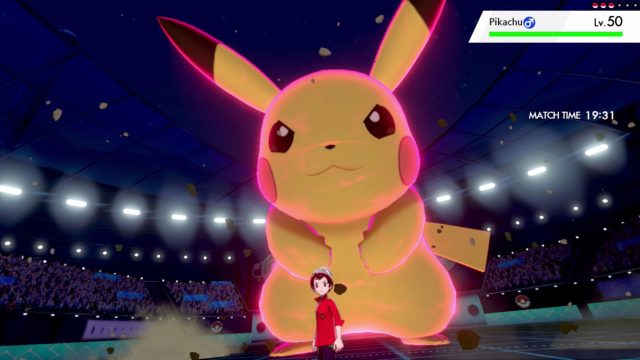
What is key to understand here is that Pokémon Sword and Shield’s Expansion Passes aren’t really any different than what has come before. It all boils down to optics and the letters “D,” “L,” and “C.” The reality is that a game of semantics is being played right now. Pokémon Yellow was, for all intents and purposes, basically DLC for Red and Blue. Rather than directly add the content of Yellow to Red and Blue directly, however, Game Freak instead put the material out as its own, separate game. Team Rocket’s Jessie and James show up, there are new squads of Pokémon to contend with when fighting gym leaders, Pikachu is automatically the player’s starter, and so on. While these aren’t the hugest changes, fans were still charged full price for the opportunity to play Yellow. It set the standard early on and has been adhered to ever since.
The Expansion Pass, meanwhile, is half the price of a new game. Yes, for those who buy or bought both versions of Sword and Shield this will mean having to pay an extra $60 to get both passes, but then, how is that any different than buying Pokémon Emerald, back in the day? What about Pokémon Crystal? All third games, all charged at full price upon launch. All, essentially, glorified DLC packs. Let’s also not forget that by the time Pokémon Black 2 and White 2 rolled around, Game Freak had replaced third game entries with individual sequels/upgrades to each title. Meaning, those who wanted the full experience each generation were having to become accustomed to paying for four titles, not three!
While I’ll freely admit that I prefer physical media to digital, I can still appreciate that the Expansion Passes for Sword and Shield are very much maintaining the tradition of previous third-game Pokémon titles— the release is just being handled in a different way. Times change, which includes technology. There’s no longer a need to put out an entire new cartridge with a largely recycled campaign inside when it’s easier and (arguably) more sensible to simply offer new gameplay via download, instead. It might not seem like it, given Nintendo’s spotty adoption of online over the years, but in Japan the country has always been at the forefront of technological innovation.
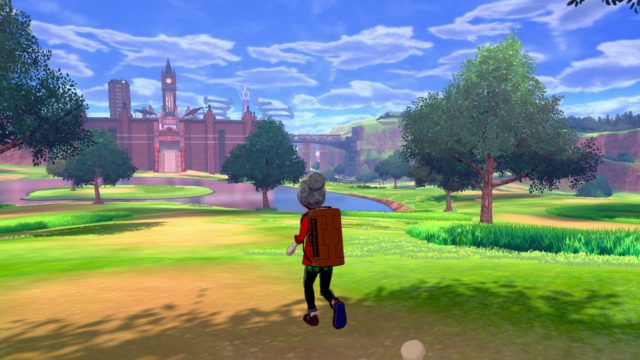
If one really wants to nitpick, Pokémon games have been taking advantage of DLC since the days of Game Boy. After all, mystery gifts and additional Pokémon distributed at places like Toys ‘R’ Us may not have been happening over the Internet, but it was still extra content that players had to download onto their game cartridges. Pretending that the Expansion Passes are some kind of violation of the series’ integrity is disingenuous at best, outright lies at worst. It’s understandable to be passionate and have an opinion about things, but that doesn’t exempt a person from being wrong. Pokémon fans decrying these DLC packs don’t have a leg to stand on.
The other hot topic of debate right now is the incoming 200 extra Pokémon that will be part of these DLC packs.The cries of “paywall” are uninformed and incorrect. From day one, fans have had to jump through hoops to maintain their Pokémon collections. Trading needed a Link Cable back when Red, Blue, and Yellow came out. With the advent of Game Boy Color, fans could trade via the infrared port on the top of the system, but to get their Pokémon from previous games, that meant needing to have two separate Game Boys. Game Boy Advance also allowed for infrared trades, but, again, multiple systems were required to keep transferring Pokémon to and from previous installments in the series. None of this was free— the expectation has always been that fans must make some kind of extra investment into Nintendo tech in order to maintain their collection of ‘Mon.
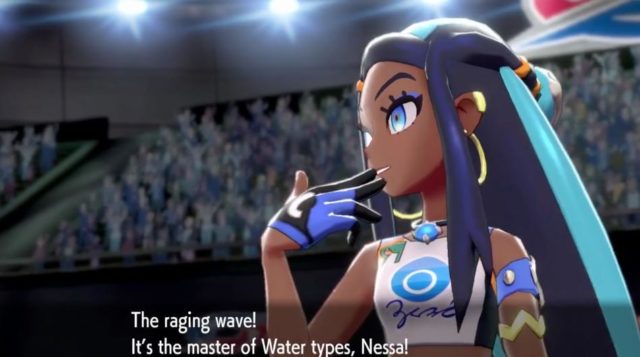
With Pokémon Home, it’s similarly laughable to waggle a finger and cry “poo-poo!” On GameCube, Nintendo sold a title called Pokémon Box: Ruby and Sapphire, which served as a means of using the console as a bridge between itself and a GBA so that players could store their Pokémon collection on a memory card. This was followed by My Pokémon Ranch on Nintendo Wii— the WiiWare title allowed players to store up to 1,000 Pocket Monsters from Pokémon Diamond and Pearl. It set the basic framework for Pokémon Bank, a paid monthly service where fans could take their Pokémon from the various 3DS games and store them in the cloud. Neither Box nor Ranch nor Bank were free, yet only now is Game Freak somehow “soiling” its good name by having the temerity to ask what it has always asked for with the introduction of Pokémon Home and its usage fees.
Perhaps the most difficult thing for the disgruntled Pokémon fans out there to accept is that this is truly business as usual for the brand for the past nearly-25 years. New Pokémon generations overwhelmingly bring with them an additional, reworked version or versions of the baseline games. These new iterations are also charged at full price. As for carrying over Pokémon from generation to generation, there has always been a financial cost. From new hardware like Nintendo Switch to accessories like Link Cables, to even separate software like Pokémon Box, transferring Pocket Monsters to and from one platform to another has never been free. To pretend that Pokémon Home is changing the paradigm is not accurate in the slightest.
As a series, one of the greatest triumphs of Pokémon has been its ability to bring people together. While the media often tried to paint gaming as a hobby that made people insular and antisocial, Pokémon appeared on the scene to show that the medium could compel the exact opposite tendencies. As the years have passed, Pokémon has revealed itself capable of uniting people across generations, as well. To see the franchise being painted as an opportunistic cash-grab by uninformed fans is beyond frustrating. It’s important to not just understand the history of the series, but also be able to contextualize its present. As when Sword and Shield launched, it’s likely that level heads will rise to the surface and compel the release of these Expansion Passes to great success. Until then, hopefully the fallacies being touted by this small cluster of fans will be drowned out by reason and facts.




 ShareThis
ShareThis





